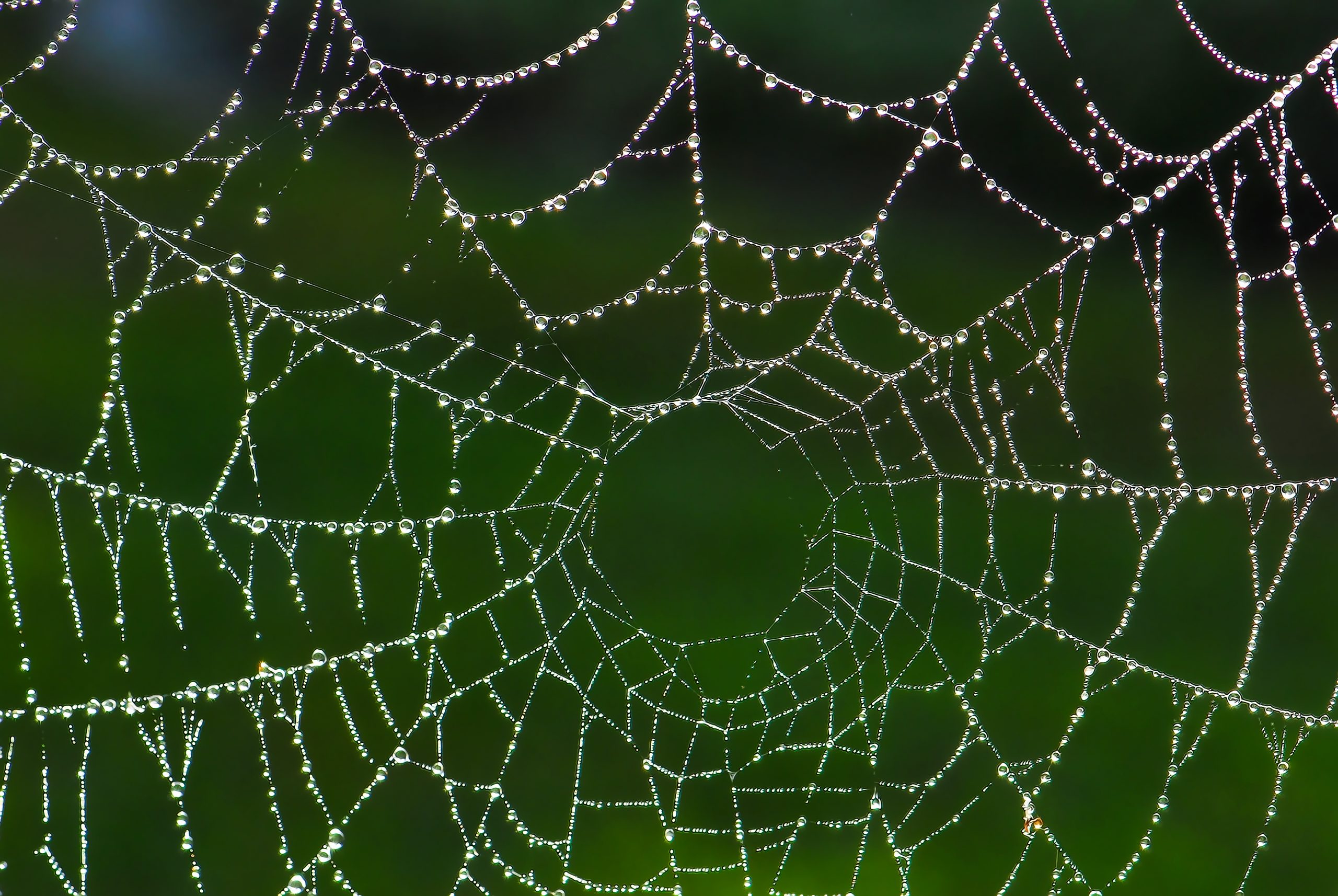Instinctual Hope
And why are you worried about clothing? Observe how the lilies of the field grow; they do not toil nor do they spin, yet I say to you that not even Solomon in all his glory clothed himself like one of these. Matthew 6:28-29 NASB
Observe – We’re very familiar with these verses. Yeshua’s reiteration of God’s perennial care only underscores the biblical theme initiated in Genesis 1. God cares! The most astounding statement the world has ever heard. But perhaps it’s not quite enough to “observe” the wildflowers. After all, they make no choices in their brief lives. They don’t decide where they will reside, when they will blossom, how they will exhibit God’s glory nor, of course, how they will die. Yeshua’s point is that God’s care even extends to these completely determined examples of life.
Can I suggest another analogy, one that illuminates two important aspects of God’s care? Consider the lowly spider. A spider’s existence depends on a cosmic sense of hope. What I mean is that a spider builds a web—and waits! The spider waits for God to provide. Yes, it might seem perfectly accidental that some fly comes buzzing through the air exactly in the path of the web, but from a spider’s point of view, the trust that this web will be at the right place at the right time is instinctual. The spider’s ultimate trust in the provision of the Creator is built into its DNA. It can do nothing else.

No spider frets over the possibility that the web is wrongly located, insufficiently constructed, or inadequately camouflaged. The spider has a divinely given trust in the Creator. That’s the way the universe at large works. Not us, of course. We’re the ones who fret and worry, anticipate, plan, regret, recoup, etc. We’ve given up the instinctual cosmic hope seen everywhere else in creation. Wildflowers might not plan. They don’t seem to exhibit conscious purpose. But spiders. They work at it. Their reliance on infinite hope is seen in every web ever built.
Perhaps human beings are victims of their own folly. The Bible seems to say so. Archbishop Charles Chaput once wrote, “Evil preaches tolerance until it is dominant, then it tries to silence good.” That seems to be the human problem. Instead of proclaiming instinctual cosmic trust in the Creator, we stretch His instructions in order to find tolerance for our lack of faith (and faithfulness). We decry His rule, ignore His disappointment, and discard His care. Unlike the lowly spider, we don’t wait for Him to reveal His sovereign intention. We are the masters of syncretism, accommodating evil in order to justify our disregard. When the human project reaches the end of its pretentious self-sufficiency, we plunge into the dark abyss by reversing the meaning of words. Isaiah castigated profligate Israel for claiming that what was evil was really good. Do you think we’re any different today?
The next time you see a spider’s web, consider the trust this tiny creature has in the order of the creation. Maybe you would learn something important about yourself.
Topical Index: observe, spider, trust, patience, Matthew 6:28-29



